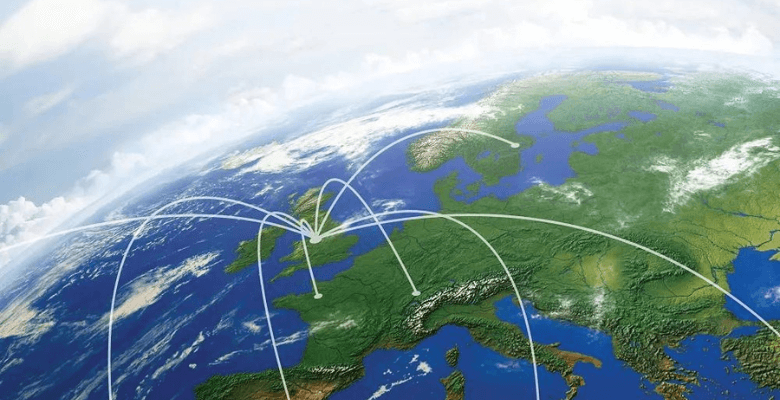
The UK government has set out plans for the trading documents used by businesses moving goods around the world to be made digital.
The Electronic Trade Documents Bill, introduced in Parliament on 12th October, is set to allow businesses to choose digital documentation alongside paper-based hard copies. Paper documentation is currently required due to old legislation predating modern technologies, including the Bills of Exchange Act 1882 and the Carriage of Goods by Sea Act 1992.
Business-to-business documents such as bills of lading (a contract between parties involved in shipping goods) and bills of exchange (used to help importers and exporters complete transactions) are among those set to be digitalised, helping to reduce the 28.5 billion paper trading documents printed and moved around the world every day.
Over ten years, it is estimated UK business could save around £1.14 billion through reductions to trade contract processing times according to the Trade Finance Global publication. The World Economic Forum estimates digitalising trade documents could also reduce carbon emissions from the logistics sector by up to 12%, while electronic documents also present security and compliance benefits through improved traceability and the use of blockchain and distributed ledger technology.
Digital Secretary Michelle Donelan said:
“Our digital-first plans will make it easier for the country’s firms to buy and sell around the world – driving growth, supercharging our economy, cutting carbon and boosting productivity.
“We want to support businesses by cutting red tape and allowing them to sell their goods and products globally without burdensome bureaucracy.
“The UK was central to establishing the international trade system in the nineteenth century and we are once again leading the world to boost global trade in the twenty-first century.”
Chris Southworth, Secretary General of the International Chamber of Commerce United Kingdom said:
“The publication of the Bill is a game changer with huge economic gains to be made for trade if companies digitalise systems and remove paper. Trade plays a huge role in the global economy so digitalisation is vital to establishing a more sustainable system.
“Real time transactional data will enable us to gather far richer, more insightful information to help us track and monitor the flow of sustainable goods and finance across the system. This is simply not possible if information is held on paper documents.”




















 More passengers heading Stateside, finds Manchester Airport
More passengers heading Stateside, finds Manchester Airport  AI tool launched to help address planning delays
AI tool launched to help address planning delays  Manchester Airport celebrates 12 months of direct flights to Las Vegas
Manchester Airport celebrates 12 months of direct flights to Las Vegas